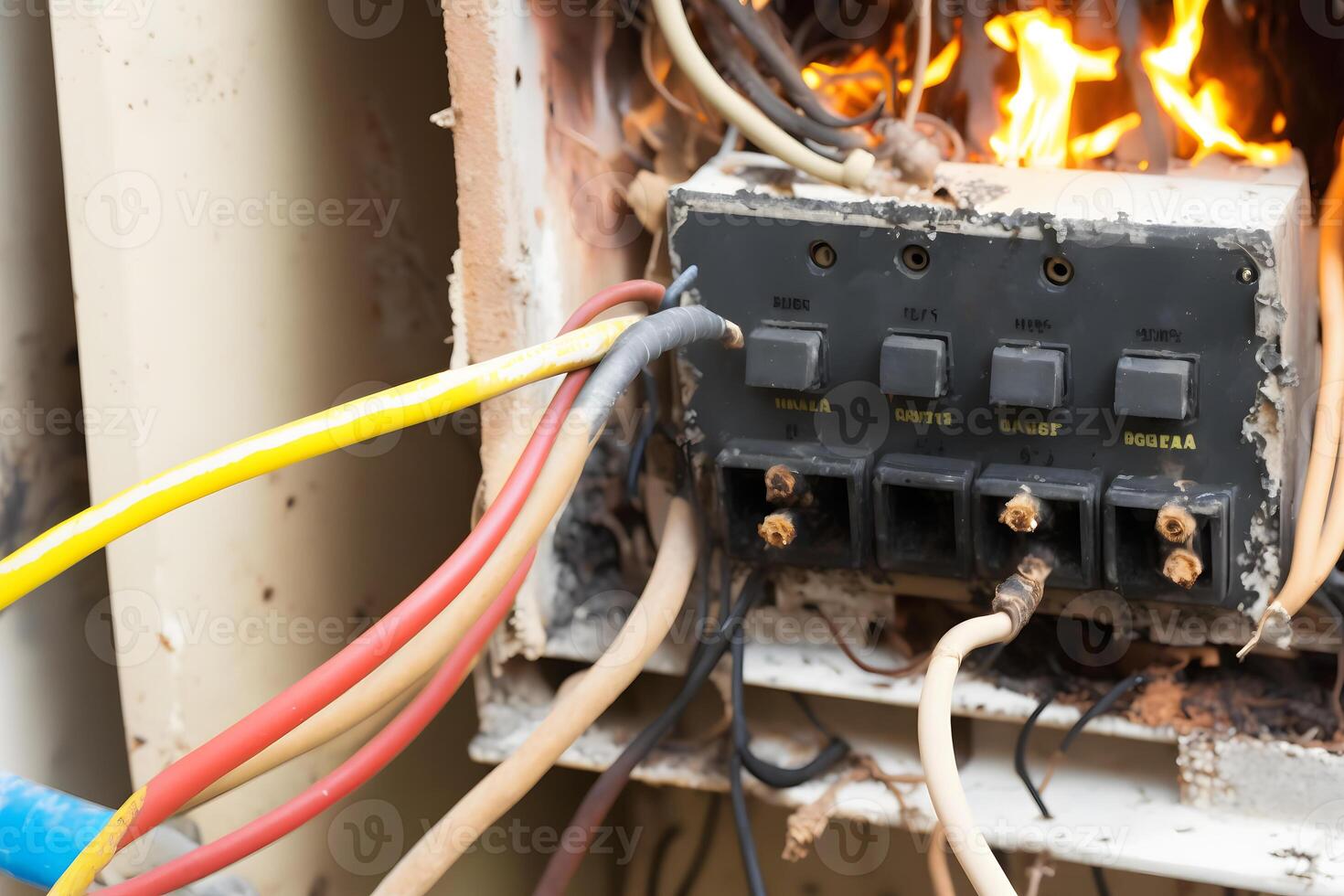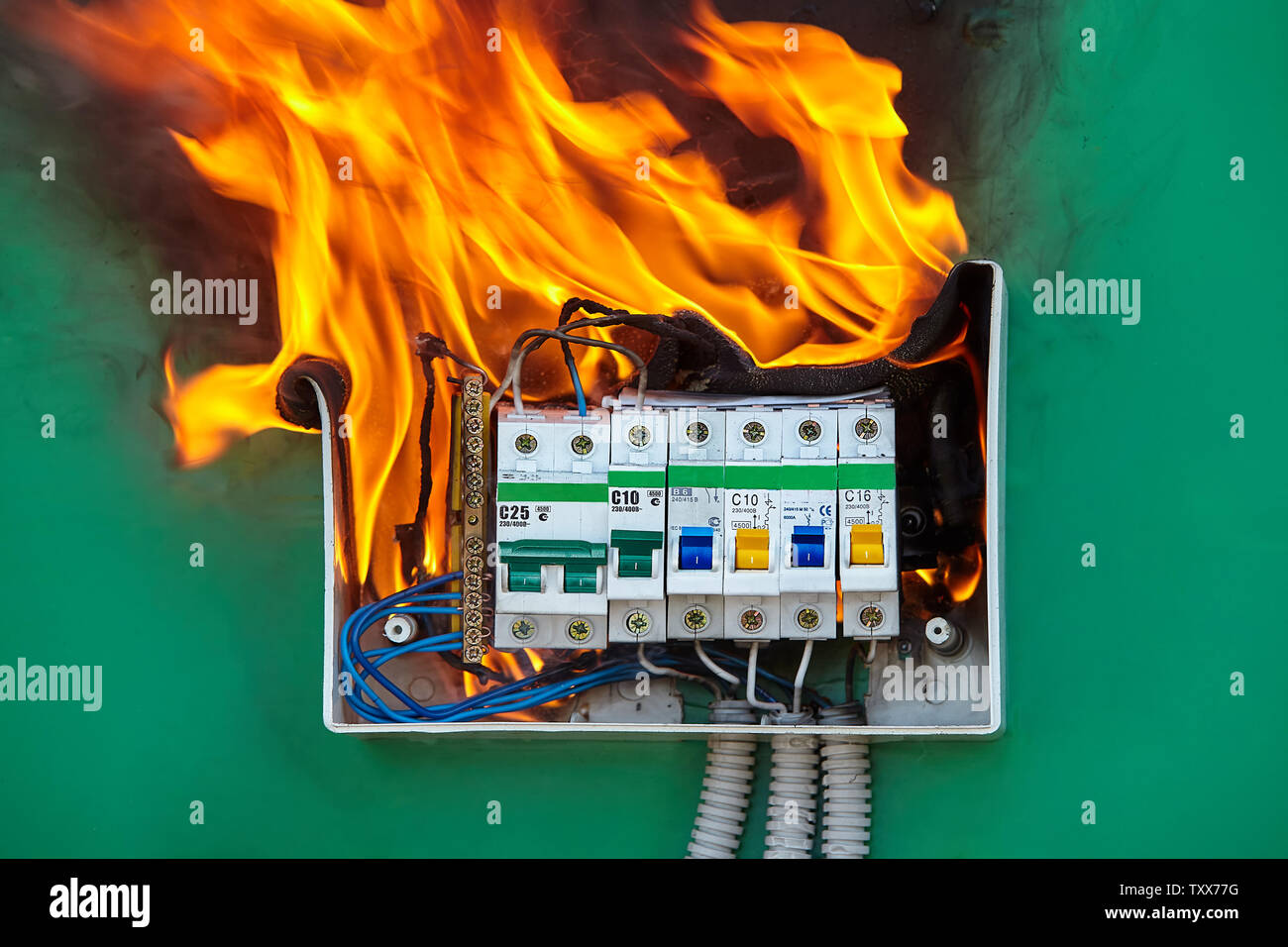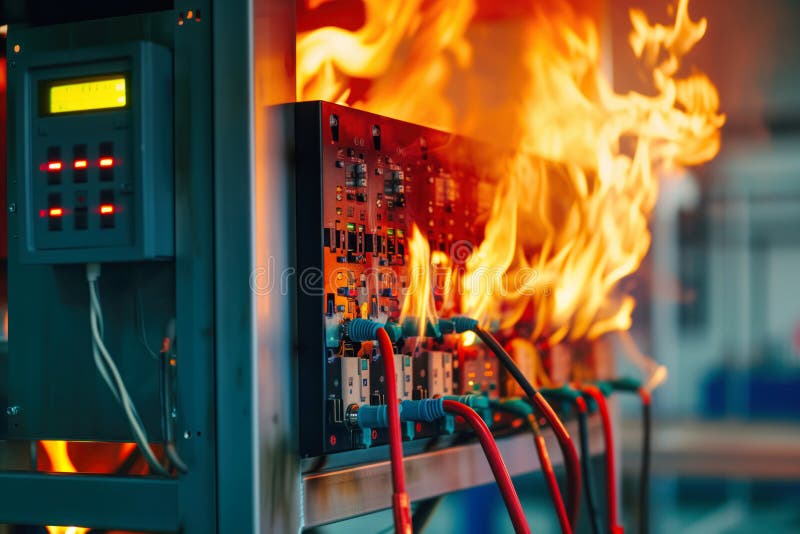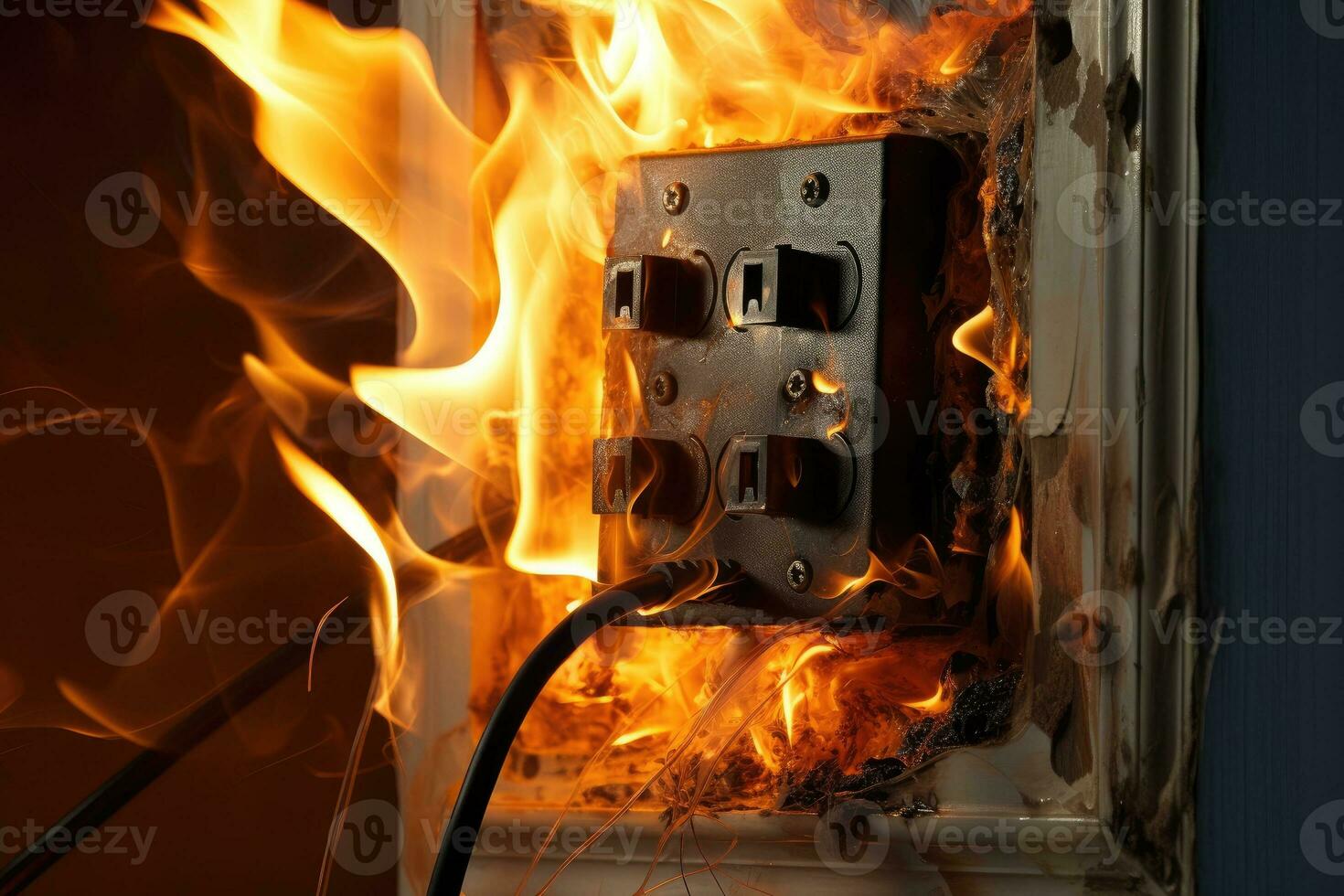Brilliant Tips About Can A Short Circuit Cause Fire

How To Prevent Short Circuits In The Workplace MTAEE
Short Circuits and the Danger of Fire
1. Understanding the Basics
So, the big question is: can a short circuit actually spark a fire? The simple answer is a resounding yes. But let's break down what a short circuit really is. Think of it like this: electricity is usually a well-behaved guest, following the designated path (wires) through your appliances. A short circuit is like that guest suddenly deciding to take a shortcut, skipping the appliance altogether. This rogue path offers much less resistance, causing a massive surge of current.
Imagine trying to squeeze the entire contents of a garden hose through a tiny drinking straw. That's essentially what's happening with the electricity in a short circuit. That overload generates tremendous heat, enough to melt wire insulation, ignite nearby flammable materials like curtains or cardboard, and, well, you get the picture — fire. The severity depends on the voltage and current available in the circuit, but any short circuit should be taken seriously. It's not something to shrug off and hope it goes away!
Now, you might be thinking, "Okay, I understand the basic concept, but how does this actually happen in my house?" Well, there are several common culprits. Damaged or frayed wiring is a big one. Think of old extension cords with exposed wires, or outlets that have been chewed on by rodents (yes, it happens!). Another frequent offender is overloading circuits — plugging too many high-powered appliances into a single outlet or extension cord. This forces the wires to carry more current than they're designed for, leading to overheating and potential shorts.
Also, faulty appliances themselves can be the source of short circuits. Internal wiring can degrade over time, leading to shorts within the device. Water damage is another factor. Water is a conductor of electricity, so if it gets into an electrical circuit, it can create a short circuit by providing an unintended path for the current to flow. So, keep those beverages away from your electronics!

A Short Circuit Caused An Electric Fire Stock Photo
Common Causes of Short Circuits
2. Pinpointing the Problems
Let's delve a little deeper into some of the most frequent scenarios that lead to these electrical misadventures. Remember those old extension cords we mentioned? They're like ticking time bombs if they're not properly maintained. Cracks in the insulation, exposed wires, or loose connections create perfect opportunities for a short circuit to occur. It's always better to replace them rather than risk a fire.
Overloading circuits is another major concern. Everyone has that one power strip that's powering half the room, right? Unfortunately, that's a recipe for disaster. Each circuit in your home is designed to handle a specific amount of current. When you exceed that limit, the wires overheat, and the insulation can melt, leading to a short. To avoid this, understand the wattage requirements of your appliances and don't plug too many high-powered devices into the same circuit.
Faulty appliances are sneaky because they can be hidden problems. A loose wire inside a toaster, a cracked heating element in a hairdryer, or a malfunctioning motor in a refrigerator can all lead to short circuits. Regularly inspect your appliances for signs of damage, like frayed cords, strange noises, or unusual smells. If you notice anything suspicious, stop using the appliance immediately and have it checked by a qualified electrician.
And don't underestimate the impact of environmental factors. Moisture, humidity, and even pests can contribute to short circuits. Water leaks, condensation, and damp conditions can corrode wiring and create unintended electrical paths. Rodents like mice and rats are notorious for chewing on electrical wires, creating exposed conductors that can easily short-circuit. So, keeping your home dry and pest-free is crucial for electrical safety.

Burning Switchboard From Overload Or Short Circuit On Wall.
Recognizing the Warning Signs
3. Spotting the Trouble Before it Starts
So, how do you know if you might have a short circuit lurking in your home? Luckily, there are often warning signs that can alert you to a problem before it escalates into a fire. One of the most obvious signs is frequently tripping circuit breakers or blowing fuses. If a circuit breaker trips repeatedly, it's a clear indication that something is wrong. It's not just a minor inconvenience; it's a signal that the circuit is being overloaded or there's a short circuit somewhere.
Another telltale sign is flickering lights or dimming lights when you turn on an appliance. This suggests that the circuit is struggling to provide enough power, which could be due to a short circuit or an overloaded circuit. If you notice this happening, investigate further and avoid using the circuit until you've identified the problem.
Pay attention to unusual smells or sounds coming from electrical outlets or appliances. A burning smell, a buzzing sound, or a sizzling noise could all indicate a short circuit or overheating wiring. These are red flags that should not be ignored. Immediately turn off the circuit breaker and unplug any appliances connected to the affected outlet.
Finally, look for physical signs of damage to electrical components. Check your outlets, switches, and cords for cracks, discoloration, or burn marks. Inspect extension cords for exposed wires or frayed insulation. If you see any of these signs, replace the damaged components immediately. A little bit of preventative maintenance can go a long way in preventing a serious electrical fire.

Damaged Circuit Breaker Became The Cause Of Electrical Short
Preventing Short Circuit Fires
4. Safety First!
The best way to deal with short circuit fires is to prevent them from happening in the first place. Regularly inspect electrical cords, outlets, and appliances for any signs of damage. Replace frayed cords, cracked outlets, and malfunctioning appliances promptly. Don't overload circuits or extension cords. Be mindful of the wattage requirements of your appliances and avoid plugging too many high-powered devices into the same circuit.
Use surge protectors to protect your electronics from power surges and spikes. Surge protectors can help prevent damage to your devices and reduce the risk of short circuits. Consider installing arc-fault circuit interrupters (AFCIs) in your home. AFCIs are designed to detect dangerous electrical arcs, which are a common cause of electrical fires. They can quickly shut off the power to the circuit, preventing a fire from starting.
Keep electrical components dry and free from moisture. Water and electricity don't mix, so avoid placing electrical outlets or appliances near water sources. If you experience water damage, have your electrical system inspected by a qualified electrician. Protect your electrical wiring from pests. Seal any cracks or holes in your walls or foundation to prevent rodents from entering and chewing on wires.
Finally, have your electrical system inspected by a qualified electrician every few years. A professional can identify potential problems and make necessary repairs to ensure that your home's electrical system is safe and up to code. Taking these simple precautions can significantly reduce your risk of a short circuit fire and keep your home and family safe.

There Was Fire Caused By Short Circuit And Overload On An Electrical
What to Do If You Suspect a Short Circuit
5. Acting Fast is Key
If you suspect a short circuit, the first thing you should do is turn off the circuit breaker that serves the affected area. This will cut off the power to the circuit and prevent further damage or a potential fire. Do not attempt to repair the short circuit yourself unless you are a qualified electrician. Electricity is dangerous, and it's always best to leave electrical repairs to the professionals.
Unplug any appliances that are connected to the affected circuit. This will help prevent further damage to the appliances and reduce the risk of electric shock. Call a qualified electrician to inspect your electrical system and identify the source of the short circuit. The electrician can then make the necessary repairs to restore the circuit to its safe and proper functioning.
If you see smoke or flames, evacuate your home immediately and call 911. Don't try to put out the fire yourself unless you are absolutely sure it is safe to do so. Use a fire extinguisher only if you have been properly trained and the fire is small and contained. Most importantly, prioritize your safety and the safety of your family.
After the fire is out, have your home inspected by a qualified electrician before you restore power. The electrician can assess the extent of the damage and ensure that your electrical system is safe to use. Preventing a small electrical issue turning into a house fire is easier if the signs of a short circuit have been observed. These preventive measures can keep you and your loved ones from harms way.

FAQ
6. Your Burning Questions Answered
Q: Can a short circuit cause a fire even if the circuit breaker doesn't trip?A: It's less likely, but still possible! Circuit breakers are designed to trip when there's an overload, but sometimes they can malfunction or be slow to respond. This is why it's important to be vigilant about other warning signs like burning smells or flickering lights, even if the breaker hasn't tripped.
Q: What's the difference between a short circuit and an overloaded circuit?A: A short circuit is when electricity takes an unintended path, bypassing the appliance and causing a sudden surge of current. An overloaded circuit is when you're drawing more current than the circuit is designed to handle (e.g., plugging too many things into one outlet). Both can cause overheating and fires, but they're technically different.
Q: Are extension cords really that dangerous?A: They can be! The problem is not just about having them, but how you utilize it in an improper way. It's about using them improperly like using damaged cord or have a habit of overloading them. As mentioned above, inspect the cords regularly, don't overload them, and replace them if they are damaged.